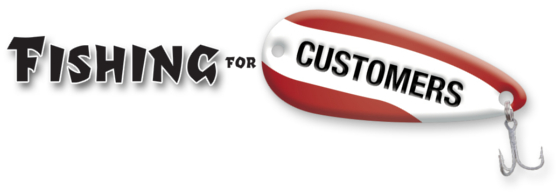I’m constantly amazed by all of the media reps from all of the different media outlets that can help your advertising to “reach the right people.”
Why am I amazed?
Because they all reach the same people.
Don’t believe me? Start with radio – there’s more information available, and the radio reps are eager to share it.
Ask ‘em for exclusive cume figures. (Cume is the cumulative total of different people who tune in to the station each week. Exclusive cumes are people who don’t listen to any other radio station).
You’ll find, as I have, that the exclusive percentage is usually around 3% – 4%.
Occasionally you’ll find a truly unique format, like Christian, or Classical, or Korean. In these situations you may find exclusive cumes as high as 15%. But as rare as those formats are, exclusivity is even more rare.
Television? TV is harder to demonstrate, since people tend to watch programs instead of stations. However, that fact alone should make my case. No television station ever has an exclusive audience.
Newspapers? Not them either.
And not outdoor, or cable, or point of purchase, or “specialty” advertising (like calendars or pens or Rubic’s Cubes with your name on ‘em).
Nope. Absolutely no medium, absolutely no media outlet, has an exclusive hold on the right people.
With only minor variations, everyone is reaching the same audience. According to Wizard of Ads research, approximately 70% of all of the radio stations in America, for instance, are suitable for advertising whatever you offer.
And yet, we keep listening to the “We’ve got the right people” pitch. We want to believe it. We want to believe that just a simple minor modification to what we’re already doing will make us incredibly successful. “We have a great offer. We just need to reach the right people.”
So we let the media reps perpetuate this nonsense.
We should hold them accountable for consultation on improving the impact of our messages.
Instead, we let them convince us that folks who read their newspaper, or watch their TV station, or listen to their radio station, or view their outdoor ads are the right people.
And they’re wrong.
No need to fuss at ‘em. Most are just repeating what they’ve been told. But they are wrong, none the less.
They don’t have a lock on the right people. They share the right people with every other media outlet in town.
Please don’t misunderstand. I’m not saying that it doesn’t matter where you place your ads. It does matter.
But not for the reason you’ve grown accustomed to hearing.
It matters because one exposure to an ad almost never leads to a sale. Regardless of the medium you choose, your ad needs to be repeated a number of times each week to make acceptable impact.
The correct media outlets are those that allow you enough exposures while staying within your budget. In other words: the less expensive choices.
They may well be the smallest media outlets in the market.
Can you reach enough people this way? You tell me.
How many additional sales each week do you need to reach your goal? Ten? Fifty? If you get the same response as direct mail and most internet sites, about two percent of the audience will purchase.
So for ten additional sales, you need to reach an audience of only 500. Is there a newspaper that doesn’t reach 500 people? A radio station? A billboard? A cable tv system?
For fifty more sales you’ll need an audience of only 2,500 – assuming that your offer interests them. It pretty much always costs less to reach 2,500 potential customers twenty times, than to reach 50,000 once. And as we said, very few things will sell on the strength of a single exposure to your ad.
Face it. Ninety-eight percent of the people in any audience have minimal interest in what you’re selling. How do you reach the two percent who are interested?
You write better ads. Then you put those ads into an efficient media buy.
You write ads that appeal to the right people.
But that’s a subject for next time.
